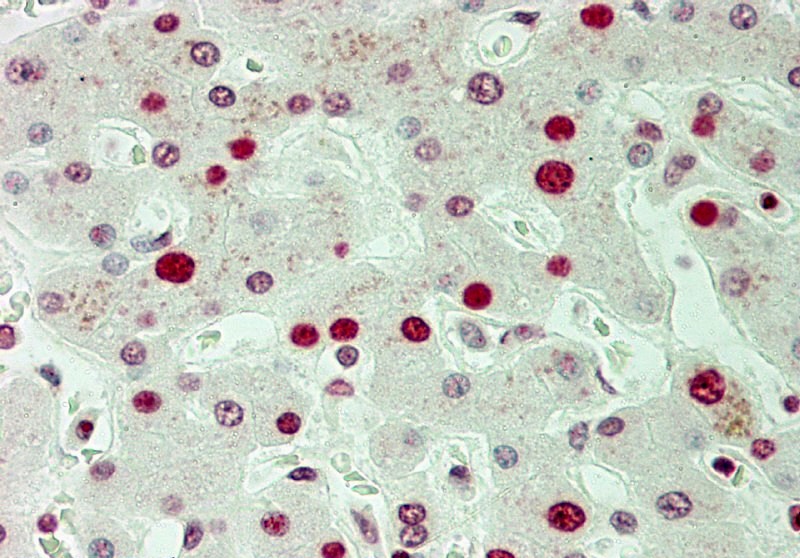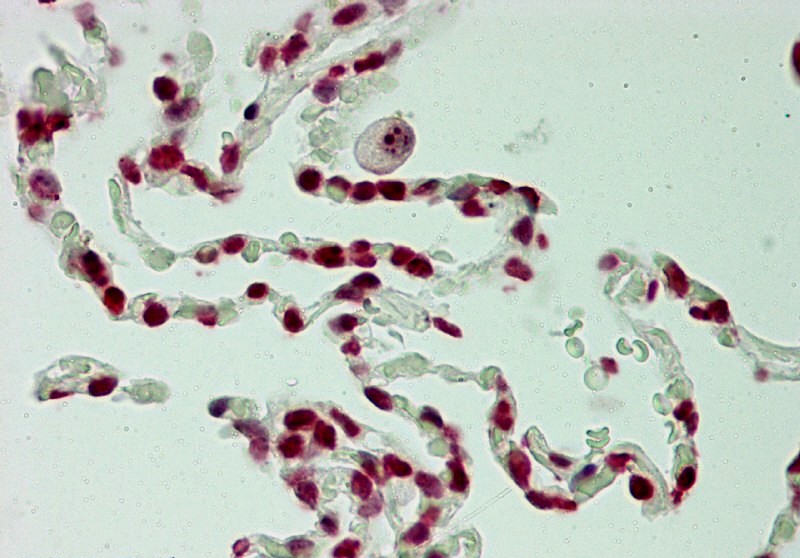Polyclonal Antibody to Histone H2A

Fig-1: Western blot analysis of Histone H2A. Anti- Histone H2A antibody (11-7017) was used at 2 µg/ml on Brain lysate.
Roll over image to zoom in
Shipping Info:
Order now and get it on Thursday April 10, 2025
Same day delivery FREE on San Diego area orders placed by 1.00 PM
| Format : | Purified |
| Amount : | 100 µg |
| Isotype : | Rabbit IgG |
| Purification : | Protein A Chromatography |
| Content : | 25 µg in 50 µl/100 µg in 200 µl PBS containing 0.05% BSA and 0.05% sodium azide. Sodium azide is highly toxic. |
| Storage condition : | Store the antibody at 4°C, stable for 6 months. For long-term storage, store at -20°C. Avoid repeated freeze and thaw cycles. |
Western blot analysis: 2-4 µg/ml, Immunohistochemical analysis: 5 µg/ml
For Research Use Only. Not for use in diagnostic/therapeutics procedures.
Susanne Hellmuth,Olaf Stemmann
In vitro reconstitution reveals requirement of Nek2a and cyclin A2 for Wapldependent removal of cohesin from prophase chromatin
bioRxiv preprint doi: https://doi.org/10.1101/2024.03.12.584565; this version posted March 12, 2024
| Subcellular location: | Nucleus, Chromosome |
| Post transnational modification: | Crotonylation (Kcr) is specifically present in male germ cells and marks testis-specific genes in post-meiotic cells, including X-linked genes that escape sex chromosome inactivation in haploid cells. Crotonylation marks active promoters and enhancers and confers resistance to transcriptional repressors. It is also associated with post-meiotically activated genes on autosomes. |
| BioGrid: | 113931. 50 interactions. |
|
There are currently no product reviews
|


















.png)












